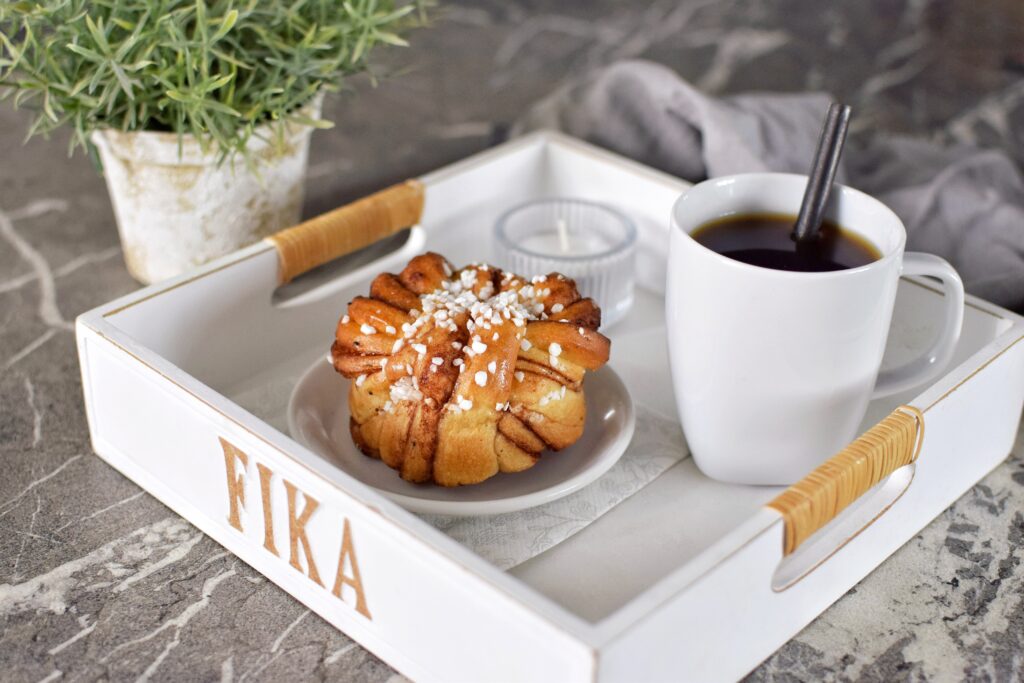The deepest joys are often found in the simplest things, such as a shared cup of coffee and a moment of presence

In the hectic rhythm of modern life, where efficiency is often valued more than human connection, the Swedes have gifted the world a simple yet quietly revolutionary concept – fika. At first glance, it seems like nothing more than a coffee break, but fika is, in fact, a deeply rooted social and cultural practice —a way of thinking, even a form of everyday meditation. In Sweden, fika is not a luxury – it is a necessity.
The word “fika” comes from a playful inversion of the syllables in the Swedish word for coffee (kaffe), and it has long since outgrown its linguistic origins. Fika is a ritual observed daily – often several times a day – and involves coffee, pastries (most commonly cinnamon buns – kanelbullar), but above all: presence, dialogue, and pause. In offices across Sweden, fika breaks are encouraged because they are known not to reduce productivity, but to foster collaboration, creativity, and emotional well-being.
Unlike in many other cultures, where coffee is gulped down standing, phone in hand, between meetings or emails, fika is an act of slowing down. It’s a time when colleagues gather to share thoughts, when friends meet without a specific reason, when families pause to be together. And most importantly, it is a moment free of guilt, without the sense that “something else is waiting.” During fika, the most important thing is already happening – human closeness.
Fika also has a subtle but important social impact. It flattens hierarchies, softens lines between boss and intern, young and old, host and guest. Everyone sits at the same table, with the same coffee, for the same reason – to be together.
 In a world increasingly losing touch with the natural rhythm of life, fika teaches us how to regain it. It requires nothing complicated – just a little time, something sweet, a warm cup, and the willingness to be present. And perhaps in that very simplicity lies the reason fika inspires people far beyond Sweden’s borders. Because today, there is hardly anything more radical than choosing to stop – and to be there, for one another truly.
In a world increasingly losing touch with the natural rhythm of life, fika teaches us how to regain it. It requires nothing complicated – just a little time, something sweet, a warm cup, and the willingness to be present. And perhaps in that very simplicity lies the reason fika inspires people far beyond Sweden’s borders. Because today, there is hardly anything more radical than choosing to stop – and to be there, for one another truly.
At the heart of every fika, of course, is coffee. Swedes rank among the top coffee consumers in the world, but what’s interesting is how they drink it: usually black and strong, but not bitter – a brew known as bryggkaffe, similar to classic filter coffee. It’s poured from thermoses, placed on the table beside cakes, and refilled again and again into small cups, unhurriedly.
A warm invitation to pause, connect, and savour life – one cup at a time
There’s not much espresso here, no milk foam or flavoured syrups. Swedes prefer simplicity – coffee is a reliable companion, not a fashion statement. It’s a drink that accompanies conversation, not interrupts it. And while some may add a dash of milk or sugar, the essence remains the same: coffee is there to connect us, to anchor us in the moment. Warm, fragrant, familiar – a reminder that the deepest joys are often found in the simplest of things.
In that sense, fika isn’t so foreign to us here in the Balkans. We have our own version of fika – we don’t call it that. When we say “let’s have coffee,” few people mean just the drink. It’s an invitation to connect, to share, to be together. It’s a moment where phones are set aside, obligations gently paused, and time is carved out for kafenisanje – a ritual that, like fika, isn’t about caffeine, but about people.
And though our conversations may be louder, our gestures broader, and our coffee stronger and thicker, the essence is the same. We, too, understand that small pauses are often the most important parts of the day. That they are what sustain friendships, calm storms, and sometimes change the course of a day. Or a life.
We may not share the language, or the recipe for coffee, but we share the understanding that life is not something to simply endure – it is something to be savoured. In good company, and every now and then, over a cup of coffee.